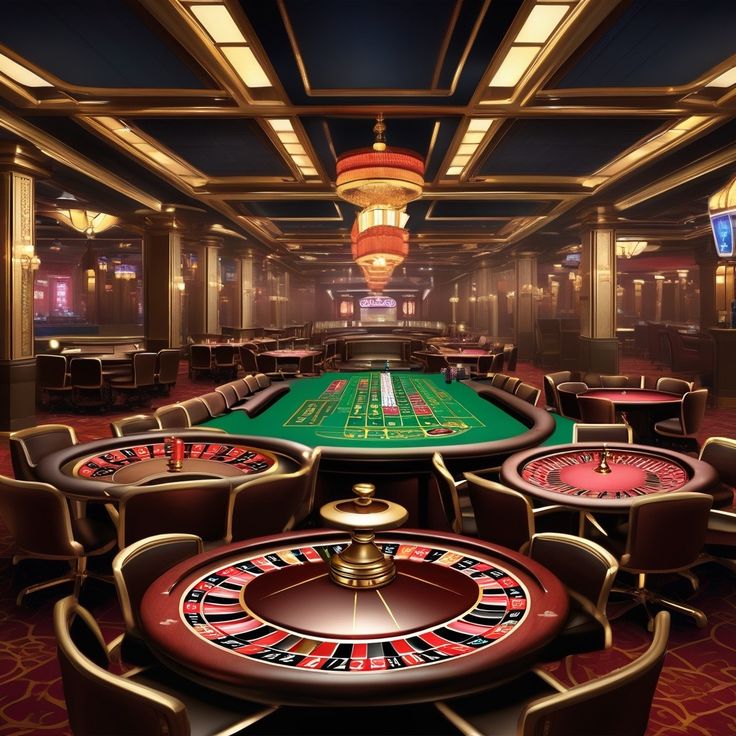Introduction
The economic meltdown of 2008, often referred to as the Great Recession, was a significant financial crisis that had far-reaching consequences for various industries. Among the sectors impacted were U.S. casinos, which experienced both challenges and opportunities during this tumultuous period. This article delves into how the economic crisis affected U.S 78win. casinos, examining the ramifications for the industry, strategies for survival, and the long-term effects on casino operations and consumer behavior.
The 2008 Economic Meltdown: An Overview
Causes of the Economic Crisis
The economic meltdown of 2008 was triggered by a combination of factors, including the collapse of the housing bubble, subprime mortgage crisis, and the subsequent failure of major financial institutions. Excessive risk-taking by banks, flawed mortgage practices, and inadequate regulatory oversight contributed to the financial instability that led to the recession.
Impact on the Financial Sector
The financial sector was hit hardest by the crisis, with major banks and investment firms facing insolvency or severe losses. The government intervened with bailouts and stimulus packages to stabilize the financial system. This intervention, while necessary, had ripple effects across various industries, including the casino sector.
Impact of the Crisis on U.S. Casinos
Decline in Consumer Spending
Reduced Disposable Income
As the economic crisis deepened, consumers faced job losses, reduced income, and declining home values. This led to a decrease in disposable income, affecting spending patterns across various sectors, including leisure and entertainment. For many, visiting casinos became a less feasible option as they tightened their budgets.
Shift in Consumer Priorities
The economic uncertainty led to a shift in consumer priorities, with many individuals prioritizing essential expenses over discretionary spending. Casinos, often considered a luxury expenditure, saw a decline in patronage as people focused on meeting basic needs.
Impact on Casino Revenues
Decreased Gambling Revenue
Casinos experienced a significant drop in revenue during the recession. The decline in consumer spending and reduced disposable income led to fewer visits and lower spending per visit. This decline in revenue affected casino profitability and operations.
Increased Competition
The economic downturn also intensified competition among casinos. As consumers had fewer discretionary dollars to spend, casinos had to compete more aggressively to attract and retain customers. This led to increased promotions, discounts, and incentives to draw in patrons.
Financial Challenges for Casino Operators
Decreased Access to Credit
Many casinos faced difficulties accessing credit during the financial crisis. The tightening of credit markets and the increased cost of borrowing impacted casino operators’ ability to finance expansions, renovations, and operational costs.
Struggling with Debt
Casino operators with significant debt found themselves under increased financial pressure. The decline in revenue made it challenging to meet debt obligations, leading to financial strain and, in some cases, restructuring or bankruptcy.
Strategies for Survival and Adaptation
Cost-Cutting Measures
Reducing Operational Costs
To navigate the economic downturn, many casinos implemented cost-cutting measures. These included reducing staff, scaling back on amenities, and optimizing operational efficiency to lower expenses and preserve profitability.
Streamlining Operations
Casinos streamlined their operations to focus on core activities and eliminate non-essential services. This approach allowed them to concentrate resources on areas that generated the most revenue and improved overall efficiency.
Enhancing Customer Experience

Introducing Promotions and Incentives
To attract customers during the recession, casinos introduced various promotions and incentives. These included discounted rates, loyalty programs, and special events designed to encourage visitation and spending.
Improving Service Quality
Casinos focused on enhancing the customer experience to differentiate themselves from competitors. By improving service quality and offering personalized experiences, casinos aimed to build customer loyalty and increase repeat visits.
Diversifying Revenue Streams
Expanding Offerings
In response to the economic challenges, some casinos diversified their offerings to include non-gambling amenities such as fine dining, entertainment, and retail experiences. This strategy aimed to attract a broader audience and generate additional revenue.
Developing Online Platforms
The rise of online gaming presented an opportunity for casinos to expand their reach beyond physical locations. Many casinos developed online platforms and mobile apps to offer virtual gaming experiences and tap into new revenue streams.
Long-Term Effects on the Casino Industry
Changes in Consumer Behavior
Increased Focus on Value
The recession led to a shift in consumer behavior, with an increased focus on value and affordability. Casinos adapted by offering more value-oriented experiences and promotions to meet changing consumer expectations.
Growth of Online Gambling
The economic crisis accelerated the growth of online gambling as consumers sought more convenient and cost-effective ways to enjoy casino games. The expansion of online and mobile platforms became a significant trend in the industry.
Evolution of Casino Business Models
Emphasis on Diversification
The economic challenges prompted casinos to diversify their business models and explore new revenue opportunities. This included expanding into non-gaming areas and developing innovative marketing strategies to attract a wider audience.
Focus on Customer Loyalty
Casinos placed a greater emphasis on building customer loyalty and retaining existing patrons. Loyalty programs, personalized experiences, and targeted promotions became essential components of casino marketing strategies.
FAQs
How did the 2008 economic meltdown impact consumer behavior towards casinos?
The economic meltdown led to a decrease in consumer spending and a shift in priorities, with many people reducing discretionary expenditures, including visits to casinos. This decline in disposable income and consumer confidence affected casino revenues.
What strategies did casinos use to survive the economic crisis?
Casinos implemented various strategies to navigate the crisis, including cost-cutting measures, streamlining operations, enhancing customer experience through promotions and incentives, and diversifying revenue streams with non-gambling amenities and online platforms.
How did the financial crisis affect casino operators’ access to credit?
The financial crisis led to tighter credit markets, making it more challenging for casino operators to access financing. The increased cost of borrowing and reduced availability of credit impacted their ability to fund expansions, renovations, and operational expenses.
What long-term effects did the economic crisis have on the casino industry?
The long-term effects included changes in consumer behavior, such as a focus on value and the growth of online gambling. Additionally, casinos evolved their business models by diversifying revenue streams and emphasizing customer loyalty.
How did the economic crisis influence the growth of online gambling?
The economic crisis accelerated the growth of online gambling as consumers sought more convenient and cost-effective ways to enjoy casino games. This led to the development and expansion of online platforms and mobile apps in the casino industry.
Conclusion
The economic meltdown of 2008 had a profound impact on the U.S. casino industry, leading to a decline in consumer spending, decreased revenues, and financial challenges for operators. However, the crisis also prompted casinos to adapt and innovate, implementing strategies to survive and thrive in a changing environment. The long-term effects of the recession include shifts in consumer behavior, growth in online gambling, and the evolution of casino business models. By understanding these impacts and adaptations, we gain insight into the resilience and evolution of the casino industry in the face of economic adversity.
I own a dealing school in Las Vegas, and when my students ask concerning counting, I usually can’t resist being a killjoy. kuwin I tell them that I’m able to teach them how to count cards in about five minutes and however do except. They are completely unimpressed. So before I get into more card counting myths, please allow me to perceived as killjoy for you, such as you were one of many students inside my Las Vegas dealer school, so you most likely are unimpressed of course.
